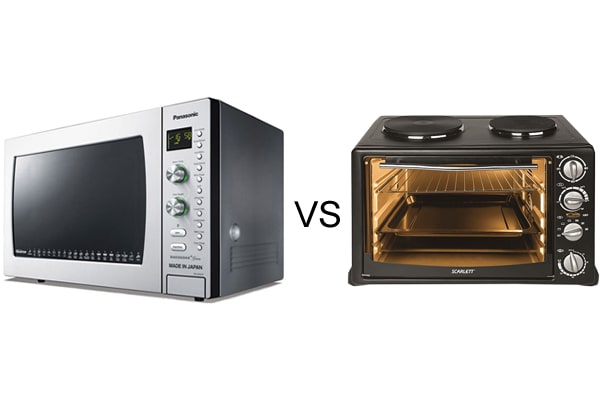When staying at a hotel, two essential services significantly enhance the guest experience: housekeeping and room service. While both aim to improve comfort and convenience, they serve distinct functions. Housekeeping ensures a clean and inviting environment, while room service caters to your culinary needs. This comprehensive guide explores the differences between these services, highlighting their roles, benefits, and how they contribute to a memorable stay.
What is Housekeeping?
Housekeeping refers to the comprehensive cleaning and maintenance services provided to ensure a comfortable and hygienic environment for guests. This service is crucial for upholding the overall appeal and safety of a hotel. The housekeeping department is responsible for the upkeep of guest rooms, public areas, and other parts of the hotel property.
Key Responsibilities:
- Cleaning and Maintenance: Includes daily cleaning of rooms, bathrooms, and common areas, changing bed linens, and restocking amenities.
- Turnarounds: Preparing rooms for new guests by thoroughly cleaning and organizing the space.
- Laundering: Managing hotel linens and guest laundry services.
- Safety and Aesthetics: Ensuring rooms are not only clean but also aesthetically pleasing and safe for guests.
Importance of Housekeeping:
- Guest Satisfaction: A clean and well-maintained room is fundamental to a positive guest experience.
- Health and Safety: Reduces the risk of illnesses and accidents by maintaining high hygiene standards.
- Reputation: This contributes to the hotel’s reputation and can influence guest reviews and ratings.
| Aspect | Housekeeping |
| Primary Role | Cleaning and maintaining guest rooms and public areas |
| Key Tasks | Cleaning, laundry, room preparation, safety |
| Department | Housekeeping |
| Availability | Standard in almost all hotels |
What is Room Service?
Room service is a hospitality service that allows guests to order food and beverages to be delivered directly to their rooms. This service offers convenience and privacy, enabling guests to enjoy meals without leaving their rooms.
Key Responsibilities:
- Food and Beverage Delivery: Providing a menu for guests to order from and delivering meals and drinks to their rooms.
- Setup and Cleanup: Bring dishes, cutlery, and trays to the room and retrieve them after use.
- Menu Availability: Often available 24/7, catering to different dietary preferences and schedules.
Importance of Room Service:
- Convenience: Allows guests to dine in their rooms, which is particularly useful for those who prefer privacy or have tight schedules.
- Enhanced Experience: Adds a touch of luxury and convenience, enhancing the overall guest experience.
- Flexibility: Provides an option for guests to enjoy meals outside of regular restaurant hours.
| Aspect | Room Service |
| Primary Role | Delivering food and beverages to guest rooms |
| Key Tasks | Taking orders, delivering, and retrieving meals |
| Department | Food and Beverage |
| Availability | May vary; not available in all hotels |
Comparison of Housekeeping and Room Service
1. Core Function:
- Housekeeping: Focuses on cleanliness, maintenance, and creating a comfortable environment.
- Room Service: Centers on delivering food and drink to guest rooms.
2. Departmental Responsibilities:
- Housekeeping: Managed by the housekeeping department.
- Room Service: Handled by the food and beverage department.
3. Service Scope:
- Housekeeping: Includes a wide range of tasks from cleaning to laundry.
- Room Service: Limited to food and beverage delivery and related services.
4. Availability:
- Housekeeping: Standard in nearly all hotels.
- Room Service: Availability varies and may not be present in budget hotels.
| Aspect | Housekeeping | Room Service |
| Core Function | Cleanliness and maintenance | Food and beverage delivery |
| Department | Housekeeping | Food and Beverage |
| Service Scope | Cleaning, laundry, maintenance | Order taking, delivery, and cleanup |
| Availability | Standard in most hotels | Varies; not available in all hotels |
Performance and Impact on Guest Experience
Housekeeping:
- Efficiency: Rapid room turnovers and consistent maintenance ensure guests find their rooms in excellent condition upon arrival.
- Quality: High standards of cleanliness directly impact guest satisfaction and reviews.
- Challenges: Requires coordination with other departments to manage guest requests and room readiness.
Room Service:
- Convenience: Offers guests the flexibility to enjoy meals in the comfort of their rooms at any time.
- Quality: High-quality food presentation and timely delivery are crucial for a positive experience.
- Challenges: These may involve additional costs and rely on efficient communication between kitchen staff and delivery personnel.
| Aspect | Housekeeping | Room Service |
| Efficiency | Essential for room readiness and guest satisfaction | Enhances guest convenience and flexibility |
| Quality | Directly impacts guest comfort and reviews | Affects guest perception of dining experience |
| Challenges | Coordination and managing guest expectations | Timely delivery and maintaining food quality |
Guest Expectations and Preferences
When to Opt for Room Service:
- Privacy: Ideal for guests who prefer dining in private.
- Convenience: Suitable for those with irregular schedules or who wish to avoid crowds.
- Special Occasions: Enhances the experience for celebrations or special moments in the room.
When to Rely on Housekeeping:
- Cleanliness: Essential for maintaining a pleasant and hygienic stay.
- Comfort: Provides the necessary environment for rest.
- Safety: Ensures all areas are safe and well-maintained.
| Situation | Room Service | Housekeeping |
| Privacy Preference | Ideal for private dining | Not applicable |
| Convenience Needs | Perfect for irregular schedules | Ensures ongoing room readiness |
| Special Occasions | Enhances celebrations in-room | Ensures a clean and welcoming environment |
FAQs
Can I request additional housekeeping services, like extra towels or bed linens, through room service?
Typically, housekeeping handles requests related to room cleanliness and amenities. However, you can place a request through room service, and they will relay your needs to the housekeeping department.
If a hotel doesn’t offer room service, does that mean its food and beverage department is lacking?
Not necessarily. Some hotels might prioritize in-house dining experiences over room service. Always check their restaurant quality or guest reviews for a clearer picture.
Are there additional charges for availing room service as compared to dining in the hotel’s restaurant?
Often, yes. Room service might come with service charges or delivery fees. It’s best to check with the hotel before ordering.
If I have feedback or concerns about cleanliness, should I address the housekeeping or front desk?
While you can directly communicate with housekeeping, it’s usually best to relay concerns to the front desk. They can ensure your feedback reaches the right department and is addressed promptly.
Can I pre-schedule room service for specific times, like an early morning breakfast?
Most hotels offering room service allow guests to pre-schedule meals. It’s always a good idea to check with the hotel’s service guidelines or directly call room service for such requests.
Is room service available 24/7 in all hotels?
Availability varies by hotel. Some offer 24/7 room service, while others may have limited hours.
Verdict
Housekeeping and room service are integral parts of the hotel experience, each serving distinct but complementary roles. Housekeeping ensures a clean, safe, and comfortable environment, crucial for guest satisfaction and overall hotel quality. Room service, on the other hand, provides the luxury of in-room dining, adding convenience and a touch of indulgence to the stay.
Understanding the differences between these services helps guests make informed decisions and enhances their overall hotel experience. Whether it’s the meticulous care of housekeeping or the convenient luxury of room service, both play a vital role in making your stay enjoyable and memorable.





